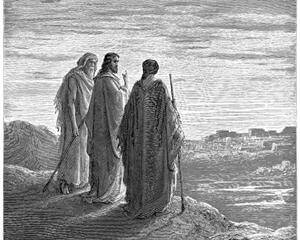Is enlightenment dead?
Or perhaps it's better to ask: In the milieu of modern education, is the pursuit of enlightenment dead?
By “pursuit of enlightenment,” I refer to a way of characterizing and approaching knowledge, a way that involves more a lifestyle than a method. Conceived as the search for enlightenment, education becomes a journey, a pilgrimage. If done properly, this pursuit implicates the integrity of the whole person -- his or her relationships, career choices, and major decisions.
The pursuit depends upon a prior belief, which might not be fully acknowledged. And that is: meaning is possible. Something like truth, or truth itself, is possible. When one seeks enlightenment, one desires some permanent insight into the way of things, something eternally valid, something concerning which the soul can say, at last, “This is how it was. This is how it is. This is how it will be.”
Results may not be immediate. Results may not be ever. The truth sought after is often disguised, covered, hidden. The learner might go weeks, even months, without an “aha” moment, without confirmation that he or she is nearing the destination. The destination, in fact, is unclear, for the seeker doesn’t know exactly what he or she searches for, only that a searching must commence. The one who seeks enlightenment listens to Ranier Maria Rilke, who once wrote: “Don’t search for the answers, which could not be given to you now, because you would not be able to live them. And the point is to live everything. Live the questions now. Perhaps then, someday far in the future, you will gradually, without even noticing it, live your way into the answer.”
The one who seeks enlightenment understands something I once heard attributed to Alasdair MacIntyre: “The good life is the search for the good life.”
The pursuit of enlightenment does not demand feedback. It does not contrive timelines. It embraces trial and error. The student might have to double back, return to base camp, reroute. The journey brings confusion and risk, frustration and blank stares. Mystery signals progress. In the course of the journey, there is always a shattering, a falling away, a dying to the self. It feels a lot like conversion.
The one who pursues enlightenment recognizes, in the spirit of Socrates, that education doesn’t bestow wisdom so much as it lessens ignorance.
There is no correlation between worldly success and enlightenment. Enlightenment does not correspond to wealth or prestige. The desire for wealth or prestige may actually prevent enlightenment because it may constrict what the soul is willing to risk or renounce.
Enlightenment truly involves “education” -- a leading out, a moving away from. When I commit to enlightenment, I commit to the relativizing of my own environment. To my own convictions I become a spectator; I roam through a gallery of my beliefs ready to remove what cannot stand. The one who pursues enlightenment wonders, “What if everything I believe is wrong?” He or she also asks, “What if everything I believe is right?”
That prelude established, where, in our centers of education, or in our culture, is the pursuit of enlightenment to be found? Catholic and other faith-based schools might be the only places where, on an institutional level, something like enlightenment is explicitly encouraged. Where else is it promoted, encouraged, invited? In the literature of school improvement, I read all the time about innovation and job preparation. Granting those are worthy goals, what about enlightenment? What would happen if a school proclaimed, as part of its mission, "We want our students to make breakthroughs in understanding the meaning of existence and their place in it"?








